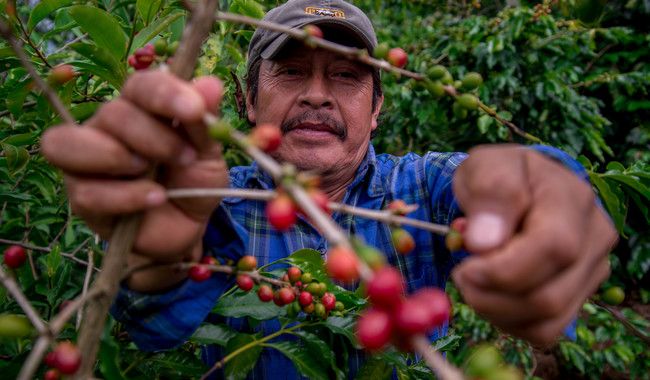exico has a Welfare Program for Small Coffee Producers, which supports the income of 219,657 small and medium scale producers.
This definition includes farms of up to five hectares of rainfed land in the first case, and more than five and up to 20 hectares in the second.
Of the total number of producers supported, 92.5% are small-scale and the rest are medium-scale; 67.2% are in municipalities with an indigenous population and 41.6% are women.
The support granted by Mexico is within the limits of the World Trade Organization’s (WTO) «Aggregate Measurement of Total Support» (AMS).
In the case of the products indicated, except for 2019, in recent years there have not been considerable increases nor is a trend in that direction expected, according to the Mexican government.
The increase in the 2019 figures is due to the fact that, in the year in question, extraordinary resources were granted for the payment of debts from previous fiscal years in the support schemes for concepts of target income, contract farming and price coverage, which were cancelled as of 2020.
While it is true that incentives for coffee production are above the de minimis level for this product, they are within the limit of Mexico’s AMS.
Coffee producers
Likewise, in the last five years the trend in the proportion of production value has been decreasing by 12% annually and in 2020, coffee support represented 18% of production value.
In the case of coffee, its cultivation is an economic and social activity of great importance in regions of high and very high marginalization in the south and southeast of Mexico.
In previous years, the Coffee Production Development Program was used to support productivity, sanitary control and the reduction of producers’ income due to low yields.
The evolution of public agricultural policies is based on criteria based on equity and distribution of resources in the different regions of the country, gender equality and support for the indigenous population and vulnerable groups, focused on small and medium-sized producers.

